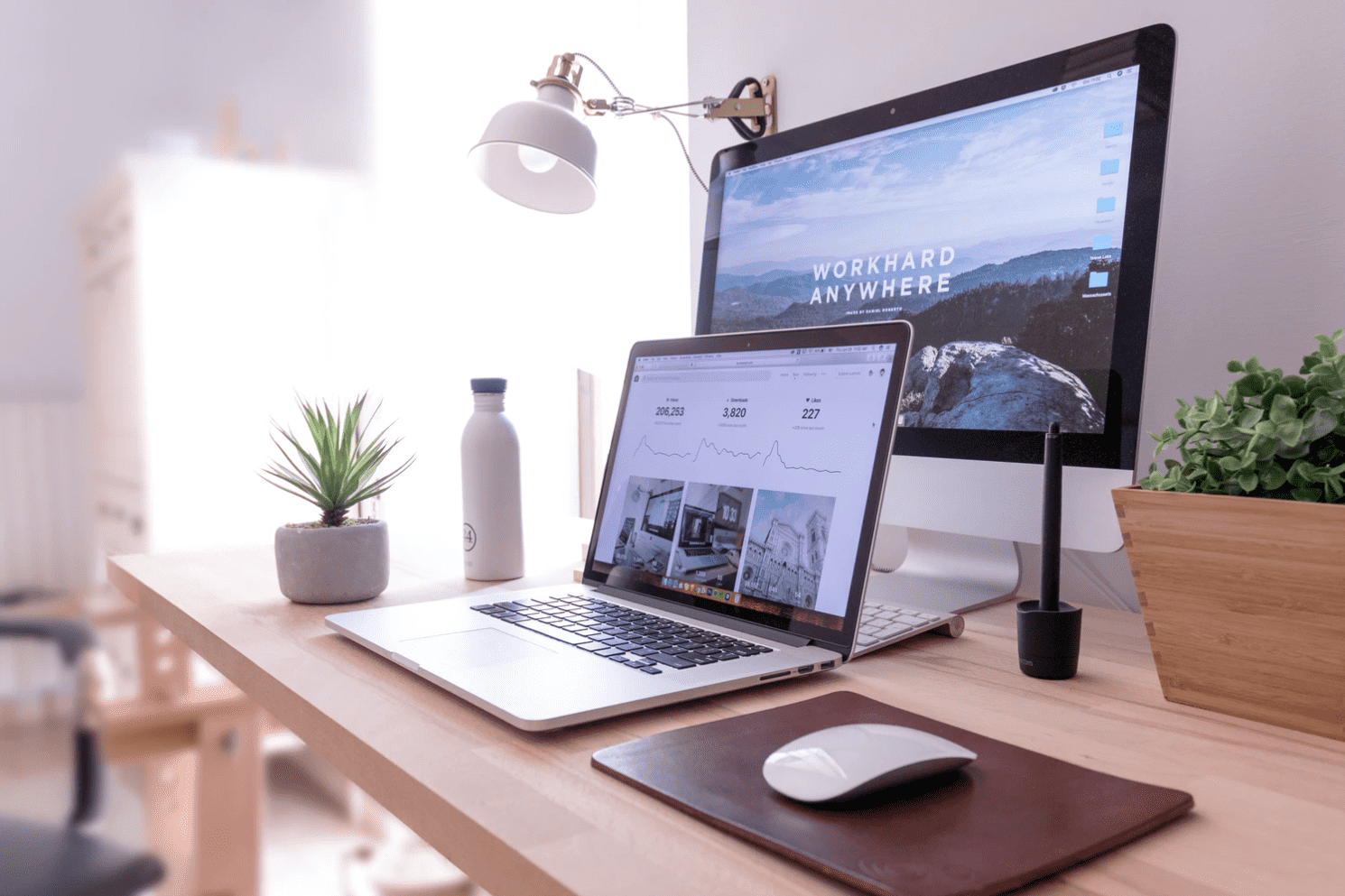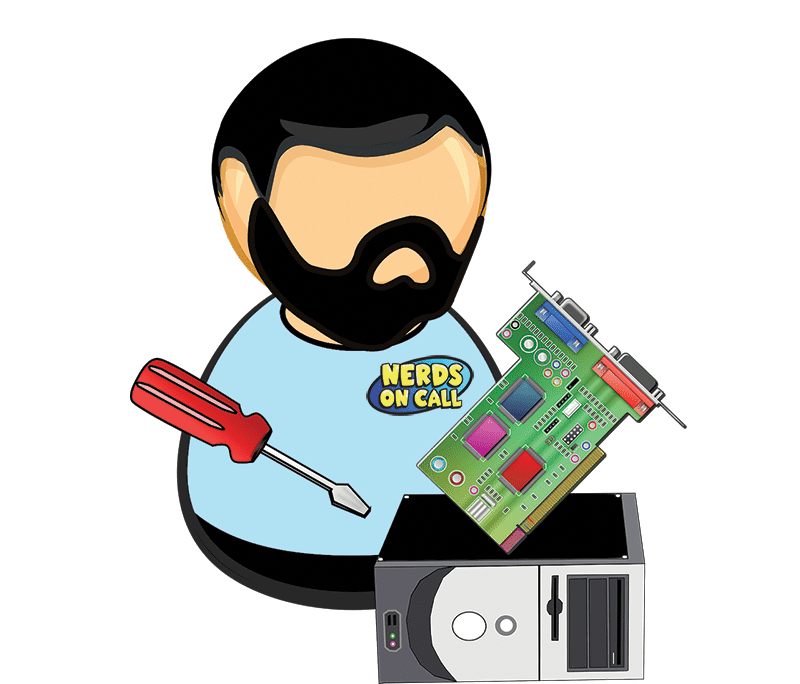New PC: What Is The Ideal Price?
Video Transcript
Marianne: Eight-eleven here. School is just starting. You need a new computer, right? Well, not necessarily. Julissa and our favorite nerd on call have advice on what you should and should not spend your money on, tech-wise.
Julissa: And this is the time to buy, right? Are you in the market for a new computer, McClary?
Marianne: No, got a beautiful laptop that I love.
Julissa: That you love. You have a great relationship with it. Okay, fantastic.
Ryan: Don’t touch my laptop.
Julissa: Don’t touch my laptop.
Ryan: This is the perfect one.
Julissa: How often should we get new computer, you think?
Ryan: About every four or five years. And especially now that almost all of us are doing laptops now. The desktop’s sort of a dying thing and soon the laptop’s gonna die too. We’re all just gonna use our phones and beam stuff right into our eyeballs.
Julissa: Crazy. Crazy. It hurts.
Marianne: That’s what “i” stands for, “eyeball”.
Ryan: This is the best time of year to buy a new computer.
Julissa: Because it’s back-to-school.
Ryan: Yeah. All major brands are releasing new models. So, you can pick up last year’s models super cheap or you can buy the latest and greatest. But, there’s a lot of like weird things you can add and do to computers and sometimes it get a little confusing. So, the number one thing you wanna do to a new computer is get a solid-state drive.
Julissa: Okay, what does that mean?
Ryan: So, it costs you about $70 more. A traditional hard drive has a platter and a little head that reads this. That is very fragile. If you drop your laptop, it’ll break. It’ll mess up your data. It doesn’t work very well. But with a solid-state drive, it’s super fast, super speedy. It’ll boot up really fast.
Julissa: It’s solid.
Ryan: Yeah, solid. It’s basically like it’s [inaudible 00:01:24] a solid-state drive. Okay. So, the next thing you wanna talk about is ram. You wanna get at least 8 gigabytes of ram. But, I’ll tell you what, just max it out. Put as much ram in there as you can. It costs about $50 for every 8 gigabytes. So, if you can go from anywhere from 8 to 16 gigabytes, that’s best, especially if you’re running Windows. Ram is your short-term memory. So, I put Dory in there. So, if you don’t have enough ram, you’re gonna be like Dory.
Julissa: Right. Gotcha. That makes sense.
Ryan: Isn’t that cute? I thought I was gonna get more laughs, but, you know. So, if you wanna talk about processors, there’s Intel, there’s AMD. You’re gonna save a few bucks if you’re using AMD over Intel, but I wouldn’t do it. I would stick with Intel, especially Core i5 or i7, and you wanna go with generation 7 or higher.
Julissa: Okay.
Ryan: I know, write these things down. This is really confusing. I see you glazing over already.
Julissa: Totally.
Ryan: So, here’s the fun stuff. We’re talking about screen size. You wanna get the best screen quality you can. It’s what you’re gonna look at the whole time. You wanna get really high resolution. You wanna get as big as you want. Keep in mind the bigger you get, the heavier it’s gonna be. You also wanna go and test it out. I wouldn’t buy something online, site unseen. Go to Costco. They’ll let you play with everything even if you’re not a member. So, you can at least see what they got, and Costco always has great deals. Or head on over to Fry’s. All about all that stuff out there. You just have to avoid the sales people. That’s all.
Julissa: And tell them Ryan said that.
Ryan: USB-C is gonna be the new standard. You’re gonna no longer have USB 2.0 and USB 3.0. USB-C’s coming. It’s not dominant yet, but you wanna make sure you got at least USB-C in the laptop. But if you do, you’re gonna have to buy one of these.
Julissa: Oh my.
Ryan: I know.
Julissa: Okay. Extra gadgets.
Ryan: It’s a little dongle. That way all your other stuff can still fit. We’re just in that mid-generation, so you kind of have to do it. But if you’re looking for a laptop and you wanna know what brands to go with, Lenovo is rated number one by In Engadget. Then HP, then Dell. And all the way down there, aww man, my favorite. That’ll make Court happy.
Julissa: I know, it will.
Ryan: But if you’re looking to spend money, you’re looking at about $600 to $900 to get a really good laptop that’s gonna last you. But if you’re gonna go cheap, you can get one from three to six hundred dollars.
Julissa: Okay.
Ryan: And that’s my advice.
Julissa: There you go. I hope you took notes. You did not, it’s okay. You’re in luck. All this will be on our website, gooddaysacramento.com. Ryan, thank you so much. Always great to see you. Back over to you, Marianne.
Marianne: All right, very good. I can’t even remember what brand my laptop is.
Julissa: And I thought you had a really strong relationship with your laptop.
Marianne: Well, [inaudible 00:03:48] questions. Accept each other as we are.
New PC? Let’s be honest here. Buying a new PC is exciting. Absolutely, it’s a decision best made with a good dollop of sensibleness. At the same time though, there’s just so much cool, flashy stuff to choose from.
In this article, we’ll help you traverse the delicate line between sensible purchasing sensibilities and full-throttled techno-bedazzlement.
We’ll show you the key things to look for when buying a new PC —so that it’s not just cool, but a powerful and useful tool that’s going to last.
Before we dive in though, remember that Nerds On Call are experts in getting great bang for your buck when it comes to computers and technology. If you want some solid advice, just call us on 1-800-919-6373 or drop us a line through our contact form.
Trying to figure out what computer is best for you, our Nerds are here to be your PC Consultants. Need help with setting up that new PC? We can get your data transferred and you’re comfortable with the new computer.
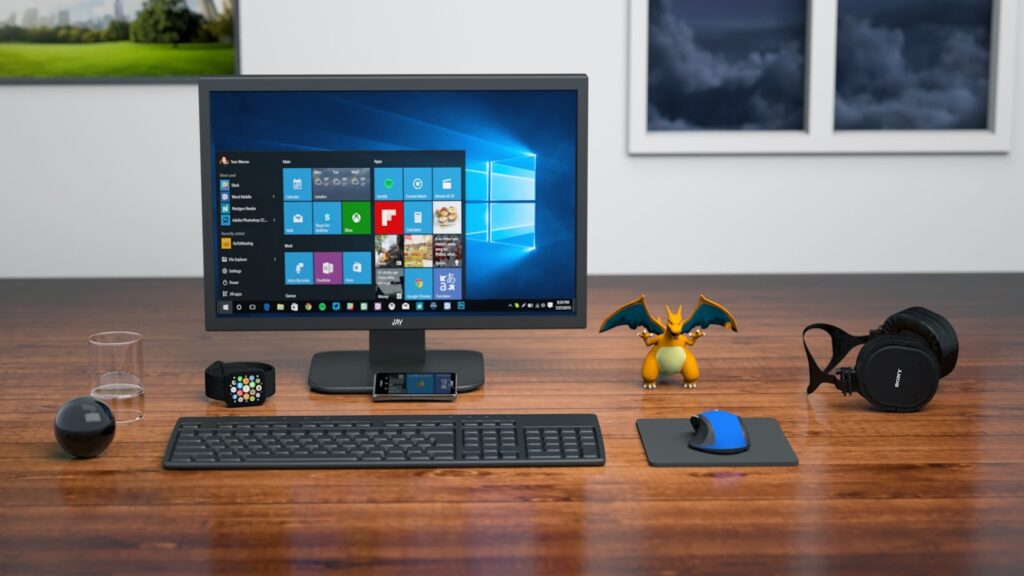
Ensure your data’s security during laptop or PC e-waste recycling with Nerds On Call. Our technicians deliver expert data destruction and wipes. Reach out to Nerds E-waste service today to arrange a convenient drop-off appointment.
Solid State Drive
OK, this might not be the most exciting feature of your new PC, but it’s really important. We’re talking about your hard drive.
Back in the day, hard drives were an entirely mechanical affair, and the fact is, a lot went wrong with them.
While these drives are a lot better than they used to be, it makes all kinds of sense to pay a little bit extra for what is known as a “solid-state drive.”
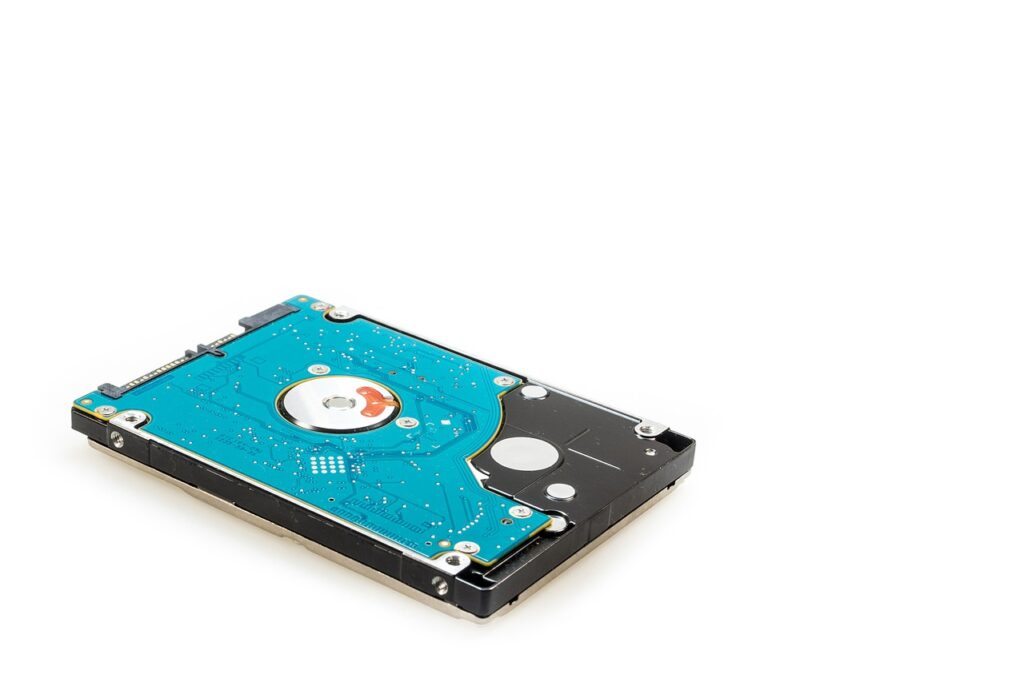
It’s not often you can say something as simple as this in the nerd world, but solid state drives are … just better. They don’t have moving parts so they’re more reliable and will protect your precious data.
They’re also faster, lighter and smaller.
The cost of upgrading from a standard hard drive to a solid state drive is as little as $70, and for that, you get peace of mind, better transfer speeds, and a generally more robust machine. Definitely a no-brainer.
Like This? We have more!
Sign up below to be kept in the loop and be sent more content like this in the future!
Grab as much RAM as you can afford
This piece of advice is as true today as it was back in the dark ages of 386 PCs, dial-up modems and VGA monitors.
Get as much RAM as your budget can afford.

So let’s just take a tiny step back and deal with the obvious question. What is this RAM stuff? RAM (Random Access Memory) is the equivalent of your short-term memory. It’s like all the stuff you’re holding in your head right now as you’re reading this article.
The more RAM your computer has, the more it can do at once and the quicker it is at doing it.
The thing about RAM (and the reason it’s such a fantastic upgrade) is that you basically use it for everything you do on your computer. From graphics to games to boring spreadsheets, RAM is the secret sauce that transforms your computer from grinding slowness to awesome zippiness.
These days, 8GB of RAM is really the rock bottom for anything running Windows. You will absolutely notice the difference if you upgrade to 16GB though.
Your machine won’t just be faster, it’ll also be more reliable.
It’s a similar deal to our friend the solid state drive, in terms of bang for your buck. 8GB of RAM these days will start at around $50, making it an inexpensive upgrade for a whole lot of added processing power.
Processor
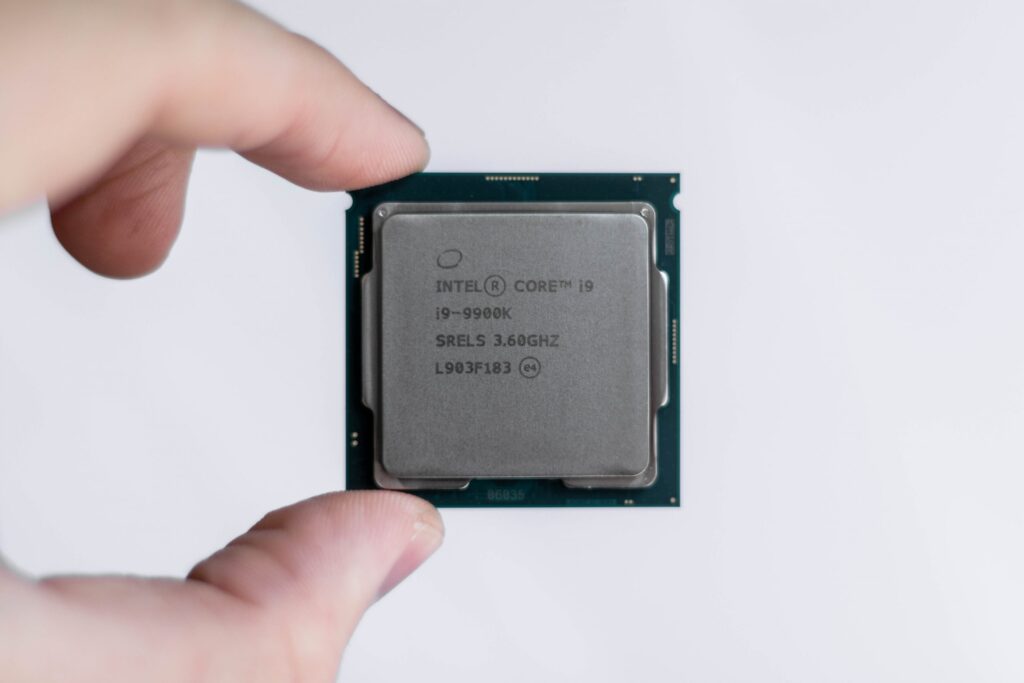
Now we’re getting into the nitty-gritty of what makes your computer a computer, rather than a really expensive paperweight.
The processor of your computer is likely to be with your computer for the life of your new PC. Typically if it’s time to upgrade that it begins to make sense to do a complete replacement.
For this reason, it makes solid sense to buy something that is going to stay functional and useful for as long as possible.
Intel Core i5 or i7 is what you should be aiming for here. Generation 7 or higher is highly recommended. With one of these powering your new PC you should expect to have solid processing grunt for at least a few years.
Oh and note that we’re specifying a brand name here: Intel. Generally, it is better to go with an Intel core over the less expensive AMD brand.
The quality difference is enough to make a noticeable difference in how your computer runs.
Laptop: Screen Size & Clarity
So far, we’ve been looking at the nuts and bolts of what makes a computer perform well.

When it comes to a laptop purchase though, it’s just as important to think carefully about screen size and clarity. After all, unlike a desktop computer, you’re kind of stuck with the same sized screen and resolution throughout the operational life of your laptop.
There’s one basic piece of advice that will serve you really well: whatever you do, don’t buy a laptop blind.
Going off a picture will tell you nothing of how it feels to actually sit in front of a laptop.
A really easy way to check out which laptop screen size works best for you is to go into any store that sells computers (Costco, Fry’s, Best Buy) and actually get up close and personal with each screen.
If you find yourself squinting and grumbling at how small a screen is after five minutes, you can be pretty confident it won’t work for you long-term!
What you need to think carefully about is the trade-off between ease of use and convenience of transportation. A smaller monitored laptop will be lighter and easier to lug about. A larger screen will be heavier but way better on your eyes.
Of course, you can also think about whether you wish to invest in a secondary standing monitor for use at home.
This will give you the best of both worlds, but of course, it’ll also require forking out extra cash for that sweet second monitor.
USB 3.0 Ports
USB ports are vital because they’re the connection point between your computer and all the various devices you use (from smartphones to external hard drives to cameras).
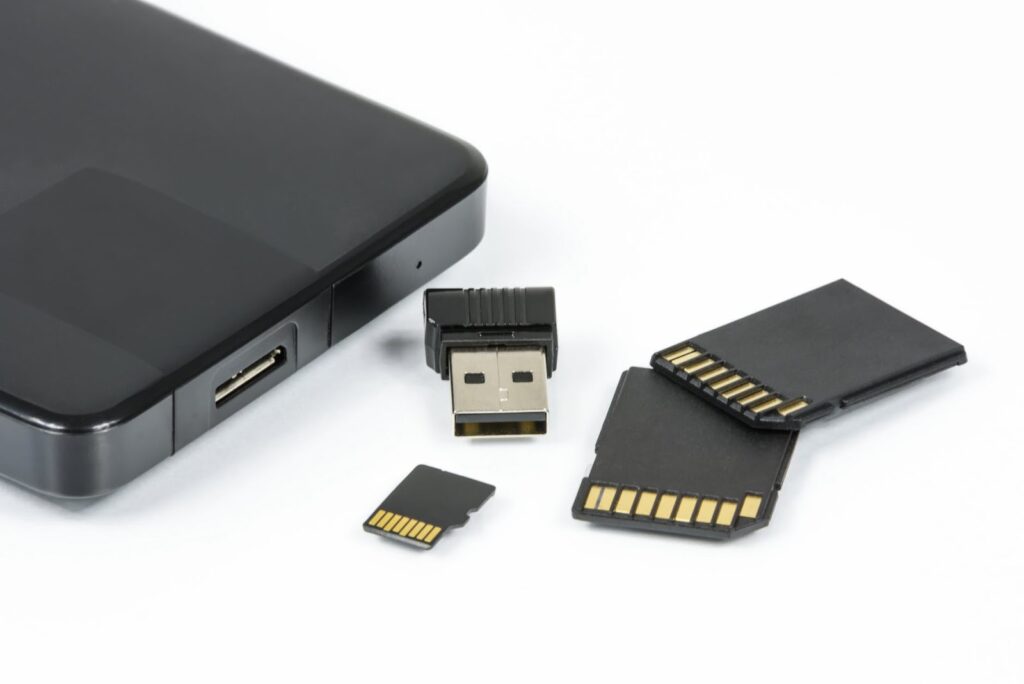
You might be tempted to go for a USB 2.0 port. After all, most of your devices are likely built for that right now.
The problem with that is, USB 3.0 is rapidly becoming the new standard. Within a few years, it could be a real headache to have to deal with obsolete USB ports.
It’s worth making sure you have the latest that USB has to offer. However, you will need to purchase an adapter for your current USB 2.0 devices. Which just goes to show you, sometimes there’s no perfect solution!
Nevertheless, our advice is that it’s better to purchase an inexpensive adapter now so that you’re better positioned to use new devices down the track.
Brand Matters
We get it. There’s a lot of brand snobbery out there. You can spend $150 for a pair of runners just because it has a fancy name brand logo emblazoned across it.
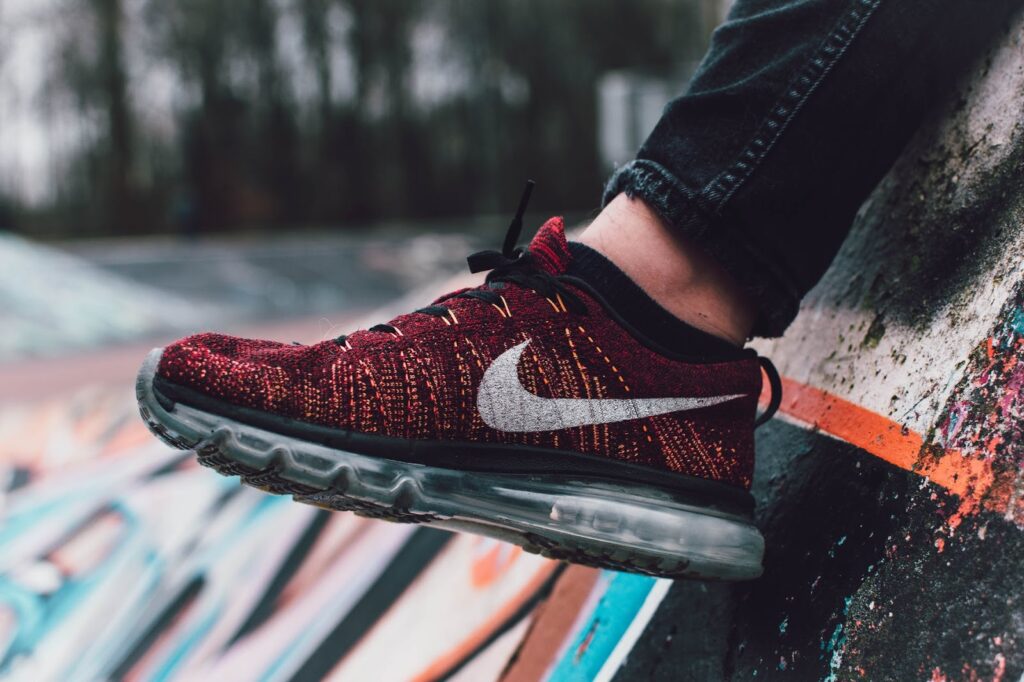
Brand really does make a difference with computers, though. Quality brand computers are built from better components and, generally speaking, will serve you better and last longer. They also provide better support.
The bottom line is, it’s worth it to pay a little bit more for a quality brand machine.
Engadget ranked Lenovo highest among laptops. You’ll also do very well with HP & Dell brands.
Buying A Gaming PC
When diving into the world of purchasing a gaming PC, there are several key factors to consider to ensure you get the best gaming experience tailored to your preferences. The first and foremost consideration is the hardware specifications. Look for a gaming PC with a powerful graphics card, as it significantly influences the quality of visuals and overall gaming performance. Popular choices include NVIDIA GeForce and AMD Radeon GPUs.
The processor (CPU), RAM, and storage are also crucial components. Opt for a fast and capable CPU, ample RAM (at least 16GB for modern games), and consider a combination of SSD and HDD storage for both speed and capacity.
Another vital aspect is the gaming PC’s form factor and design. Some gamers prefer a sleek and compact design, while others may prioritize a larger case for potential future upgrades and better cooling. Pay attention to the cooling system to prevent overheating during intense gaming sessions. Additionally, explore the available ports and connectivity options to ensure compatibility with your peripherals and accessories.
Moreover, keep an eye on the gaming PC’s upgradeability. The ability to swap out components easily allows you to adapt to evolving gaming demands without needing to invest in an entirely new system. Consider the manufacturer’s reputation, customer reviews, and warranty options to ensure reliability and support in case issues arise.
Lastly, factor in your budget and aim for the best balance between performance and cost, keeping in mind that gaming PCs are an investment in a high-quality gaming experience.
How Much Should I Pay For A New PC?
So, all this leads to the sixty bazillion dollar question, how much should I pay?
For a decent but basic new PC or laptop, expect to be paying somewhere between $400 and $600.

If you’re looking for a system which will last 4 to 5 years, you’re probably going to be paying somewhere between $600 and $900.
While there’s a bigger immediate outlay to a higher spec machine, in the long run, it’s likely to save you money buying a machine that will last. If your budget can stretch that far, it’s a smart nerdish move.
Buying a new PC can be a bit overwhelming, but if you keep your head screwed on and focus on the features that deliver speed and reliability, chances are you’ll be taking a good quality machine home with you.
Like This? We have more!
Sign up below to be kept in the loop and be sent more content like this in the future!
